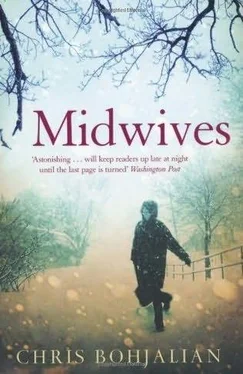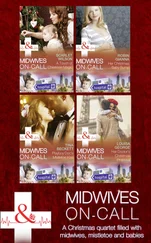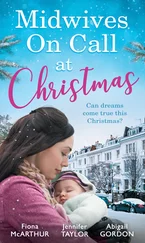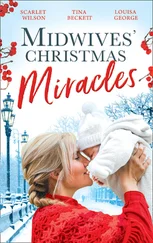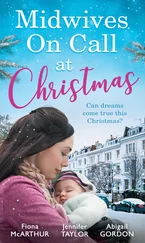Chris Bohjalian - Midwives
Здесь есть возможность читать онлайн «Chris Bohjalian - Midwives» весь текст электронной книги совершенно бесплатно (целиком полную версию без сокращений). В некоторых случаях можно слушать аудио, скачать через торрент в формате fb2 и присутствует краткое содержание. Жанр: Современная проза, на английском языке. Описание произведения, (предисловие) а так же отзывы посетителей доступны на портале библиотеки ЛибКат.
- Название:Midwives
- Автор:
- Жанр:
- Год:неизвестен
- ISBN:нет данных
- Рейтинг книги:5 / 5. Голосов: 1
-
Избранное:Добавить в избранное
- Отзывы:
-
Ваша оценка:
- 100
- 1
- 2
- 3
- 4
- 5
Midwives: краткое содержание, описание и аннотация
Предлагаем к чтению аннотацию, описание, краткое содержание или предисловие (зависит от того, что написал сам автор книги «Midwives»). Если вы не нашли необходимую информацию о книге — напишите в комментариях, мы постараемся отыскать её.
Midwives — читать онлайн бесплатно полную книгу (весь текст) целиком
Ниже представлен текст книги, разбитый по страницам. Система сохранения места последней прочитанной страницы, позволяет с удобством читать онлайн бесплатно книгу «Midwives», без необходимости каждый раз заново искать на чём Вы остановились. Поставьте закладку, и сможете в любой момент перейти на страницу, на которой закончили чтение.
Интервал:
Закладка:
I wished Tom were there, but he had gone to school that day. Besides, I wouldn't have dared call him because that would have meant using the telephone, and the last thing any of us wanted was to be on the telephone if the jury came back with a verdict.
And of course the phone rang constantly that afternoon, which was an enormous source of frustration. The calls were always from reporters or my mother's friends, and by two-thirty my father was snapping at them all without discrimination-and no one who heard him could blame him.
Sometimes I heard people talking about the notebooks, but my mother never went to her office to look at them and I was relieved. As far as I knew, she had not opened them on Thursday night either, and so she still hadn't discovered what I'd done.
Would I have broken down as I did if the verdict had come in the following week, would my howls have been quite so loud if the jury had deliberated throughout the weekend? Would waiting the weekend-and therefore having to endure the myth that a long deliberation meant conviction-have caused the same sort of emotional explosion?
Perhaps, but we'll never know, because we were called at three-twenty with the news that we should return to the courthouse.
No one would venture a guess in my mother's presence what a four-hour deliberation actually meant, but I know I was feeling for the first time in well over a week that there was a chance my mother would be vindicated. I could tell Patty Dunlevy felt the same way, and it almost seemed that Stephen had regained his swagger.
But no one would speak of such things to my mother. In one of the strangest exchanges I heard in all of the months before the trial began and the two weeks of the trial itself, my grandmother asked my mother as we drove back to the courthouse, "Have you ever considered putting in another window in your examining room? I think the extra light would make the room much more cheerful."
"I haven't," my mother answered, apparently contemplating a future somewhat different from our fantasies. "But maybe someday when those prenatal posters are gone I'll hang some nice flowered wallpaper. Wallpaper with irises, maybe. Lots and lots of blue irises."
Looking back, I think it was the sheer speed of the deliberations that led to my cries in the courtroom.
By the time we had returned to Newport and climbed the stairs in the courthouse, by the time the judge had told the spectators that he would tolerate "no theatrics, disturbances, or dramatic reactions to the verdict" when it was read, by the time he had asked one of the bailiffs to escort the jury back into their long box and the rest of us were rising in our seats, I had concluded that my mother would be found not guilty on the one charge that mattered: involuntary manslaughter.
I don't think I really cared whether she was found guilty of the misdemeanor, of practicing medicine without a license.
Yet as the jury was being led in, that changed. That changed completely. None of the twelve jurors would look at my mother. They looked straight ahead of them as they walked, they looked at their shoes as they sat. They looked at the clock on the wall, they looked at the lake.
"Please be seated," the judge told us when the jury was back. "Good afternoon," he said to the group, and then turned to one of the court officers.
"Miss Rivers, do you have the envelope with the sealed verdict forms?"
"Yes, Your Honor."
"Would you please return that envelope to the foreman?"
My mother sat unmoving between Stephen and Peter, her hands clasped before her on the table. Beside me I saw my grandmother's hands were trembling.
"Mr. Foreman, would you review the envelope with the forms?"
The foreman had one good hand, and one with only a thumb. But over the years he had apparently become fairly dexterous with his six fingers: With the disfigured hand he used his thumb and palm to hold the envelope, and with the other he flipped through the papers.
"Are they the forms you signed? Are they in order?" Judge Dorset asked.
The foreman looked at the judge and nodded. And still none of the jurors would offer my mother a glance. Not one brief glance. They wouldn't even look at my father or me.
Please, I prayed to myself, -please, look at me, look at my mother. Look at us, look here, look here, look here. But none would, none did. And then one, the elderly Lipponcott woman, looked toward Bill Tanner, and I knew it was over and we had lost. My mother would be found guilty, my mother would go to jail. My theft of pages from my mother's notebooks had merely been one more meaningless gesture in a meaningless tragedy. Charlotte Bedford was dead, and my mother's life was essentially over. She would go to jail, she would never catch babies again.
And that's when I started to cry. It wasn't simply the pressure that caused me to scream and sob, it wasn't the waiting or the tension or the stress. It was the idea that the roller-coaster ride was finally coming to an end, and it was coming to an end with a long chain of cars-some holding Bedfords and some holding Danforths-smashed on the stanchions that were supposed to carry us all high above the craggy horrors of the earth.
I was not present when the verdict was read, I was with my grandmother and Cheryl Visco and Patty Dunlevy in a small conference room far down the hall. I have been told that when the judge asked my mother to stand and face the jury, Stephen helped her to her feet. Some of those present tell me that he held her elbow as the verdict became public, but others aren't so sure. With my father right behind him, I don't believe that Stephen would have done such a thing.
But I was wrong about so much; he may have.
If my mother believed the myth about juries Stephen had told us earlier that day in the parking lot, and if she had noticed that none of the jurors would look at her, then she may have been surprised by the verdict. I am told she nodded her head a tiny bit and sighed, and my family's relief was manifested much more visibly by my father: He murmured a "Thank you" so loud that people in the rows far behind him could hear it, and looked up toward the ceiling in gratitude and relief.
A long second later, when everyone in the courtroom had absorbed the verdict, there was the sort of spontaneous reaction that the judge chose not to stifle: Charlotte's sister and mother and the midwives started to cry. The midwives cried with joy, while the Fugetts sobbed for their dead sister and daughter and friend.
Some of the witnesses who had been kept from the courtroom through the largest part of the trial, people like Asa Bedford and Anne Austin and B.P. Hewitt, were in the room when the verdicts were announced, but none of them showed much reaction. Not even Asa. He hugged Charlotte's mother and rocked her, but his face remained impassive.
Later Bill Tanner would try and suggest that although my mother had been acquitted on the charge of involuntary manslaughter, the jury had still sent an important message to midwives about home birth: They had found her guilty of practicing medicine without a license, a signal that he said meant Vermont juries were not at all enamored with the idea of home birth.
That evening, however, neither the midwives nor my father cared that my mother had been found guilty of the misdemeanor. A two-hundred-dollar fine was absolutely nothing compared to a manslaughter conviction, and once more the adults played loud party tapes at our house, while I curled up on the couch in their midst and sipped herbal tea till close to midnight.
Even seven years after my mother's trial, many of her midwife friends feared that my decision to go to medical school would be seen by many people as an indictment of home birth. It was not. I became an ob-gyn at least in part because a woman's right to choose to have her baby at home was important to me, and I wanted to be sure there were always doctors on call who would support that decision.
Читать дальшеИнтервал:
Закладка:
Похожие книги на «Midwives»
Представляем Вашему вниманию похожие книги на «Midwives» списком для выбора. Мы отобрали схожую по названию и смыслу литературу в надежде предоставить читателям больше вариантов отыскать новые, интересные, ещё непрочитанные произведения.
Обсуждение, отзывы о книге «Midwives» и просто собственные мнения читателей. Оставьте ваши комментарии, напишите, что Вы думаете о произведении, его смысле или главных героях. Укажите что конкретно понравилось, а что нет, и почему Вы так считаете.
